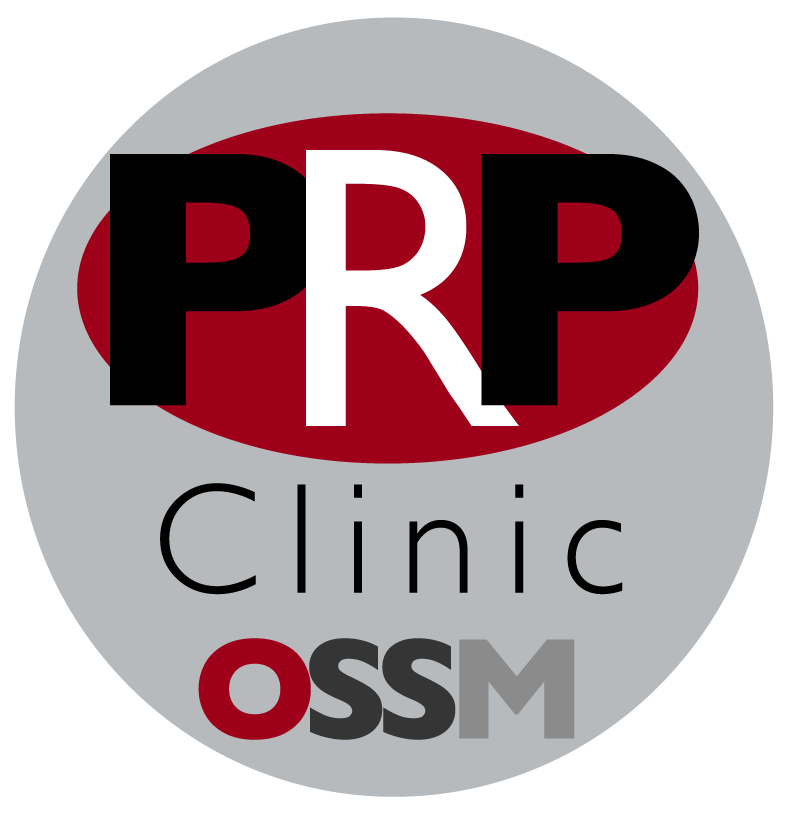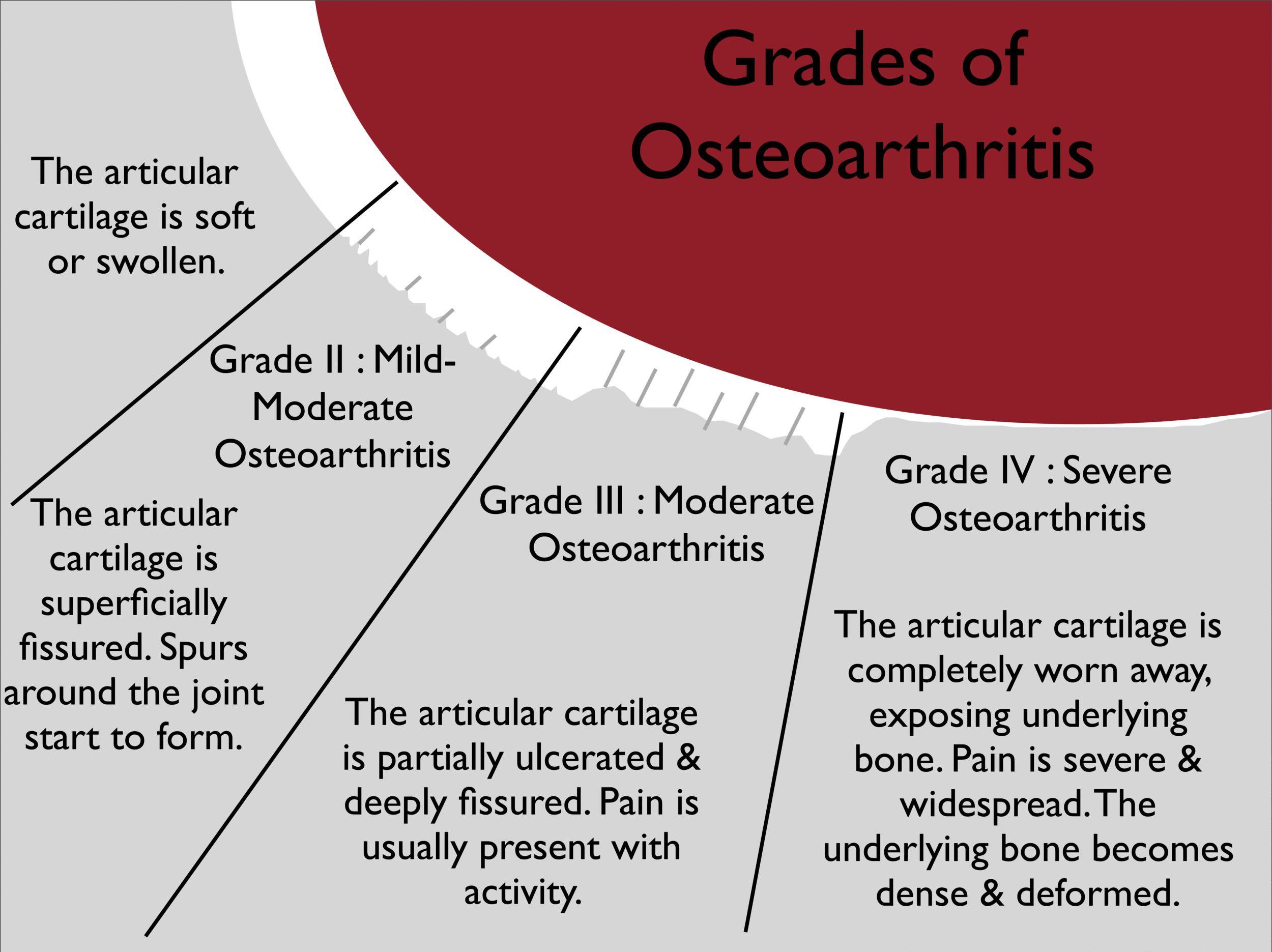Knee osteoarthritis is the degeneration and ulceration of the joint articular surface.
Symptoms of osteoarthritis gradually progress from a low grade ache after heavy activity to constant severe pain that interferes with sleep. It may take decades to progress from mild symptoms to severe.
Some patients have had knee injuries in the past, such as a meniscal tear or fracture, or an underlying joint conditions such as gout. Occasionally, patients have no obvious causative factors. 60% of sixty year old patients will have some osteoarthritis.
A downloadable handout on knee osteoarthritis is available here.
Osteoarthritis is the most common form of arthritis but is often the end-stage of other types of arthritis such as rheumatoid arthritis, gout, pseudo-gout or psoriatic arthritis. Osteoarthritis only effects the damaged joint, it doesn’t spread to other nearby joints. It is a failure of the joint surface to withstand or adapt to the loads placed on it, either due to genetic intrinsic abnormalities or extrinsic problems such as obesity. Pain of osteoarthritis is not generated from the cartilage as it has no nerve fibers.
Most patients with osteoarthritis of the knee don’t need surgery and will benefit from non-operative treatment.
As the osteoarthritis progresses the knee will slowly start to stiffen and either become bow-legged or knock-kneed.
Pain, swelling and stiffness are the most common symptoms. There is poor correlation between the severity of osteoarthritis on X-Ray and level of symptoms. Some people with severe osteoarthritis on x-ray are blissfully unaware. Locking or catching can also be due to osteoarthritis, however meniscus tearing or loose bodies can cause similar problems.
Self-management is perhaps the most significant factor in controlling osteoarthritis. A person who anticipates problems and makes lifestyle changes is better able to achieve control. Non-operative management includes weight loss, low impact exercises, appropriate analgesia, knee braces, physiotherapy, injectable therapy such as PRP, good quality footware, topical creams. Recent studies suggest that the benefits of Gluclosamine and Chondroitin are very mild or nil.


